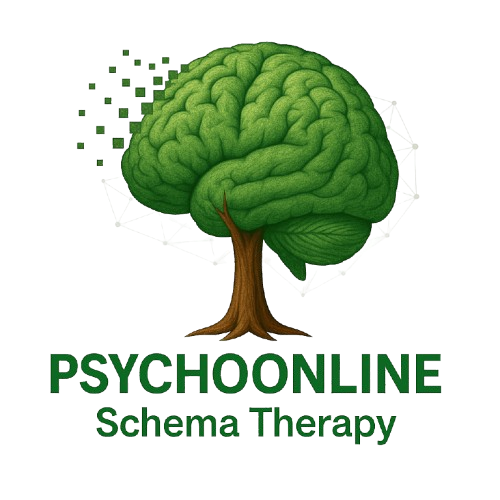
Young Maladaptive Schemas Inventory
Test Overview
The Young Maladaptive Schemas Inventory (Improved Version) is a 75-item self-report questionnaire rated on a six-point scale (0 = Strongly Disagree to 5 = Strongly Agree). It assesses 18 core schemas— deep patterns of thought, emotion, and behavior formed in childhood.
- Items: 75 statements
- Scale: 0–5
- Time: ~15–20 mins
- Interpretation: Higher score = stronger schema presence
1. Abandonment / Instability
Fear that relationships will end or be unreliable.
- Expecting loved ones to leave unexpectedly
- Seeing relationships as unstable
- Hypervigilance to rejection cues
2. Mistrust / Abuse
Expectation that others will hurt or manipulate you.
- Belief people seek to exploit you
- Difficulty trusting intentions
- Anticipation of betrayal
3. Emotional Deprivation
Feeling emotional needs won’t be met.
- Belief no one understands or cares
- Sense of emotional isolation
- Expecting lack of support
4. Defectiveness / Shame
Belief you’re flawed or unlovable.
- Feelings of worthlessness
- Fear of criticism
- Hiding perceived flaws
5. Social Isolation / Alienation
Sensing you don’t fit in.
- Feeling disconnected from peers
- Belief you’re different
- Sense of being misunderstood
6. Dependence / Incompetence
Belief you can’t handle life alone.
- Relying on others for decisions
- Fear of inability without help
- Avoidance of independence
7. Vulnerability to Harm or Illness
Chronic fear of disaster or illness.
- Anxiety about health or safety
- Constant worry
- Difficulty relaxing
8. Enmeshment / Undeveloped Self
Excessive emotional involvement.
- Poor personal boundaries
- Loss of individual goals
- Self-esteem tied to others
9. Failure
Feeling inadequate compared to peers.
- Expecting to fail
- Avoiding challenges
- Self-fulfilling fear of incompetence
10. Entitlement / Grandiosity
Belief you deserve special treatment.
- Expecting compliance from others
- Disregard for rules
- Lack of empathy
11. Insufficient Self-Control / Self-Discipline
Difficulty controlling impulses.
- Giving in to desires
- Struggling with long-term goals
- Emotional reactivity
12. Self-Sacrifice
Putting others’ needs first.
- Neglecting your own desires
- Fear of upsetting others
- Feeling resentful
13. Subjugation
Yielding control to avoid conflict.
- Suppressing objections
- Fear of angering others
- Passive compliance
14. Approval-Seeking / Recognition-Seeking
Reliance on external validation.
- Needing praise
- Hiding true feelings
- Fear of not being admired
15. Negativity / Pessimism
Focus on worst-case outcomes.
- Chronic worry
- Cynical outlook
- Difficulty seeing positives
16. Emotional Inhibition
Suppressing feelings to avoid disapproval.
- Hiding anger or joy
- Remaining unemotional
- Fear of vulnerability
17. Unrelenting Standards / Perfectionism
Striving relentlessly for perfection.
- Self-criticism
- Fear of mistakes
- Workaholism
18. Punitiveness
Belief in harsh punishment for mistakes.
- Critical attitude
- Low tolerance for imperfection
- Desire for retribution
Young Maladaptive Schemas Inventory (Improved Version)
| Gender | Age | Marital Status | Occupation |
|---|---|---|---|


